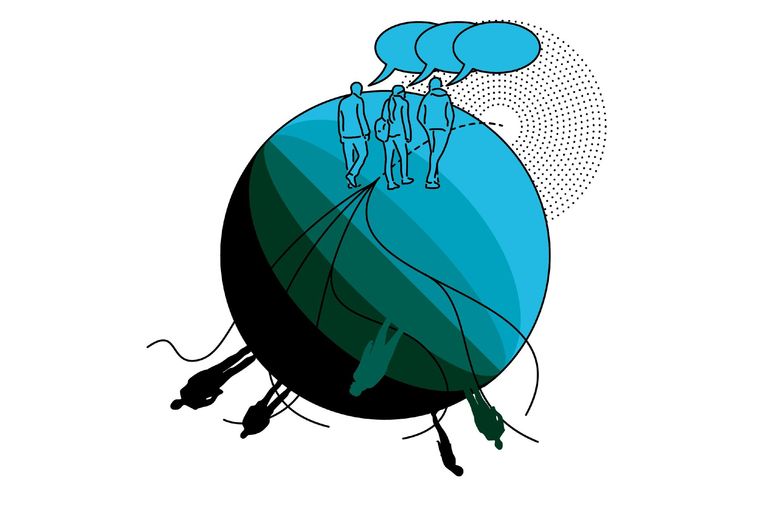Des valeurs, visions et voies communes pour le développement durable

S'appuyant sur six thèmes prioritaires, le "Livre blanc sur la recherche en développement durable" présente les besoins les plus urgents de la Suisse en matière de recherche afin d'atteindre les objectifs de développement durable de l'ONU.
Le «développement durable», loin d’être un concept objectivement défini, est sous-tendu par des hypothèses, des éléments discursifs, des valeurs et des paradigmes, dont beaucoup sont implicites et même contradictoires. Il faut les identifier et en débattre afin de développer une vision commune d’un avenir durable ainsi que la manière de la réaliser. La communauté scientifique peut soutenir ce processus sociétal grâce à une recherche collaborative et inclusive.
Key unresolved questions
Lire le livre blanc sur la recherche en développement durable (Priority Themes for Swiss Sustainability Research):
Podcast sur les visions d'avenir durables - à quoi pourrait ressembler notre vie en 2035 (Des valeurs, visions et voies communes pour le développement durable)
Comment pouvons-nous vivre de manière plus durable sans renoncer massivement au confort et aux voyages? Comment notre vie peut-elle avoir moins d’impact sur le climat ? Pouvons-nous trouver un nouveau consensus pour répondre aux besoins légitimes de tous les êtres humains tout en protégeant le climat et notre environnement ? La communauté scientifique peut soutenir ce processus sociétal par une recherche collaborative et inclusive. L'Institut de recherche sociale de Genève mène des recherches sur la manière dont la vie quotidienne, l'utilisation de l'énergie et notre bien-être pourraient se présenter à l'avenir. À l'aide de Personas, l'équipe de recherche dirigée par le professeur Marlyne Sahakian a créé des exemples de vie qui représentent une vie ayant moins d’impact sur le climat en 2035.
Orlane Moynat est doctorante à l'Université de Genève et assistante de recherche et d'enseignement. Elle travaille en collaboration avec Antonietta Di Giulio, qui est chercheuse à Bâle pour l'interdisciplinarité et la transdisciplinarité et répond aux questions sur la durabilité. Toutes deux partagent le même credo : "Se priver de voyager à long terme, par exemple, ne peut pas être la solution. Nous devons créer des alternatives qui offrent un compromis pour nous les consommateurs, et qui nous permettent de profiter autant de nos déplacements que de nos voyages".
Dans cet reportage audio, Antonietta di Giulio vous explique pourquoi il est si important de parler de "restriction" plutôt que de "renoncement" en matière de durabilité et pourquoi nous ne devrions rien nous imposer ni même nous évaluer.
Cette vidéo a été réalisée par des étudiants de la filière Multimedia Production du module Corporate Communications de la Haute école spécialisée bernoise. Les projets multimédias ont été réalisés dans le cadre d'une collaboration entre le WWF Suisse et les trois classes de Multimedia Production des hautes écoles spécialisées des Grisons et de Berne.
